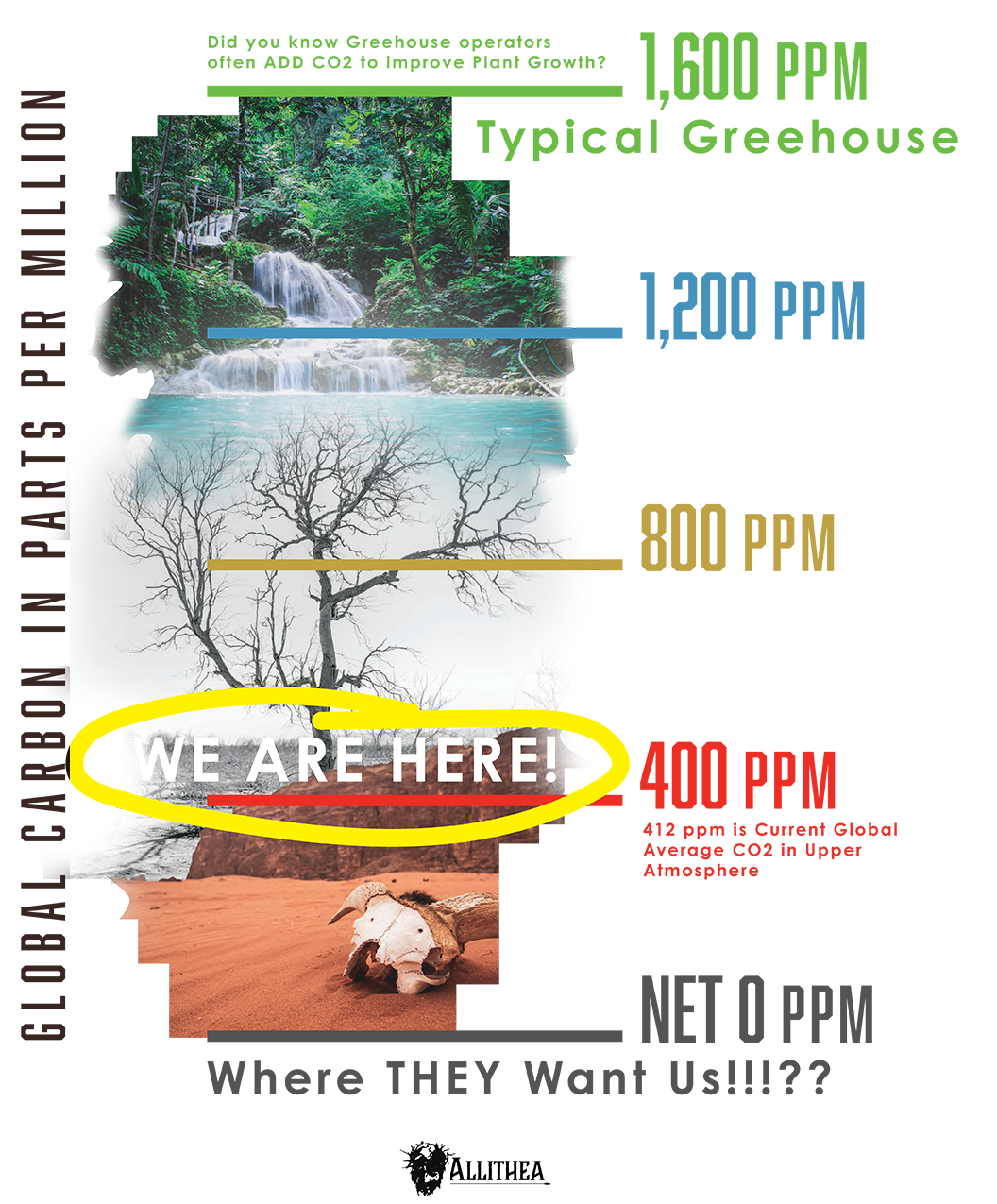What if what we thought was actually totally wrong about climate change?
It wouldn’t be the first time science made claims that turned out to be completely opposite of what we truly need. Remember when you weren’t supposed to eat eggs, or meat, or oils?
Give this article a read as presented on US Senate.Gov

Carbon Dioxide Benefits the World:
See for Yourself
CO2Coalition.org
P R E F A C E
This white paper summarizes the views of the CO2 Coalition, a new and independent, non-profit organization that seeks to engage thought leaders, policy makers, and the public in an informed, dispassionate discussion of how our planet will be affected by CO2 released from the combustion of fossil fuel. Available scientific facts have persuaded Coalition members that additional CO2 will be a net benefit.
Rather than immediately setting this document aside for promoting such a politically incorrect view, readers would do well to act on the ancient motto of Britain’s prestigious Royal Society—nullius in verba, “don’t take anyone’s word for it,” or more simply, “see for yourself.”
Claims that “97 percent of scientists” agree that a climate catastrophe is looming because of the emission of CO2 should be greeted with skepticism. Traditional science has advanced by comparing observations or experiments with theoretical predictions. If there is agreement with theory, confidence in the theory is increased. If there is disagreement, the theory is abandoned or it is modified and tested again against observations. Scientific truth has never been established by consensus, for example, by “97 percent agreement.”
History reveals many instances when the scientific consensus of the day was later discredited. The widespread embrace and practice of eugenics in the early 1900s; opposition to the theory of plate tectonics in geology; and the dominance of Lysenkoist biology in the Soviet bloc, are a few recent examples. Given the frequency of mistaken consensus, citizens everywhere should heed the Royal Society’s motto and learn as much as they can about how increasing CO2 levels in the atmosphere will affect the planet.
Overview
Green plants grow faster with more CO2. Many also become more drought resistant because higher CO2 levels allow plants to use water more efficiently. More abundant vegetation from increased CO2 is already apparent. Satellite images reveal significant greening of the planet in recent decades, especially at desert margins, where drought resistance is critical. This remarkable planetary greening is the result of a mere 30% increase of CO2 from its preindustrial levels. Still higher CO2 levels will bring still more benefits to agriculture. Plants use energy from sunlight to fuse a molecule of CO2 to a molecule of water, H2O, to form carbohydrates. One molecule of oxygen O2 is released to the air for each CO2 molecule removed. Biological machinery of plants reworks the carbohydrate polymers into proteins, oils and other molecules of life.
Every living creature, from the blooming rose, to the newborn baby, is made of carbon from former atmospheric CO2 molecules. Long-dead plants used CO2 from ancient atmospheres to produce most of the fossil fuels, coal, oil, and natural gas that have transformed the life of most humans – moving from drudgery and near starvation before the industrial revolution to the rising potential for abundance today. The fraction of the beneficial molecule CO2 in the current atmosphere is tiny, about 0.04% by volume. This level is about 30% larger than pre-industrial levels in 1800. But today’s levels are still much smaller than the levels, 0.20% or more, that prevailed over much of geological history. CO2 levels during the past tens of millions of years have been much closer to starvation levels, 0.015%, when many plants die, than to the much higher levels that most plants prefer.
Basic physics implies that more atmospheric CO2 will increase greenhouse warming. However, atmospheric processes are so complicated that the amount of warming cannot be reliably predicted from first principles. Recent observations of the atmosphere and oceans, together with geological history, point to very modest warming, about 1 C (1.8 F) if atmospheric CO2 levels are doubled. Observations also show no significant change in extreme weather, tornadoes, hurricanes, floods, or droughts. Sea levels are rising at about the same rate as in centuries past. A few degrees of warming will have many benefits, longer growing seasons and less winter heating expenses. And this will be in addition to major benefits to agriculture. More CO2 in the atmosphere is not an unprecedented experiment with an unpredictable outcome. The Earth has done the experiment many times in the geological past. Life flourished abundantly on land and in the oceans at much larger CO2 levels than those today.


0 Comments